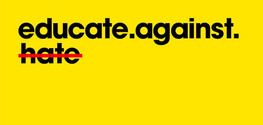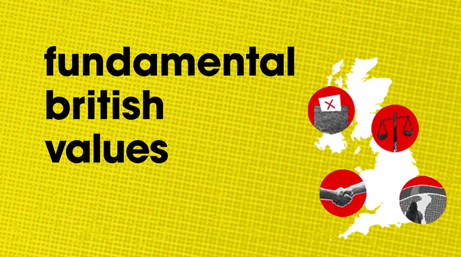

Incels
A short guide for those teaching KS4 and higher learners

TABLE OF CONTENTS
03
04
05
06
07
'Pilling'
08
09
10
11
12
13
14
Who is this guidance for?
This guidance explains what the Incel online subculture is and the signs that a young person may be engaging with it. This guidance is for:
- teachers of key stage 4 and older students
- school leaders
- designated safeguarding leads
- those working in education settings with a Prevent Duty
This guidance will help them:
- understand what Incels are
- understand which terms and concepts are used by Incels
- potential harms of engaging with Incel subculture(s) including suicide, self-harm and violent extremism
- understand what to do if you are concerned a student or learner is engaging with the Incel online subculture
What are Incels/ page 3
A note about this guidance
This guidance is to provide a basic overview of the Incel online subculture and where possible concerns – including safeguarding, ill mental health, and Prevent – may arise.
Depending on the specific circumstances, acts of violence by Incels may or may not be assessed as terrorism, depending on what the specific motivation for that attack is. As the Incel online subculture is itself complicated, some cases that are Incel, or Incel-type motivated, may be assessed as extremist or terrorist, while others may not.
Whilst some involved in Incel subculture may advocate for violence, many young people that identify with Incels may have low self-esteem and subscribe to the view that they are inherently deficient in some way and therefore view Incel as an identity rather than an ideology.
The most common risk relating to Incels is self-directed harm, including suicidal ideation and actions. Where some parts of Incel subculture provide a supportive function, others can exacerbate negative feelings and thoughts towards the self and others. This guidance is not comprehensive, and both the context of the individual and most appropriate way to support them should always be taken into account.
Content warning / page 4
Content warning
This guidance includes:
- references to content intended to incite violence, and content discussing and encouraging suicide and self harm
- references to extreme content including violent misogyny, racism, anti-Semitism, Islamophobia, Nazism, and other extremist ideologies
We would encourage you to seek support if you are affected by any of the content in this short guide.
Page 12 of this document explains what to do if you have concerns about a young person.
What are Incels?
Incels are self defined 'involuntary celibates' who believe that they are unable to form sexual relationships with women due to a combination of their looks and their perception of societal structures.
Some Incels express intense hatred for women, believing that they are entitled to sexual and romantic attention, and perceive women as denying them this need. Some followers of this online subculture also target attractive or sexually active men as well as women.
The Incel subculture mainly operates online, and can be seen as more of a subculture than a coherent group or organisation. Incels sometimes use highly specialised language developed by themselves, and use it to communicate in online forums and share their worldview.
What do they believe?
- genetic factors influence their physical appearance and/or cognitive and social abilities to the extent that they are unattractive to women.
- that prior to women gaining sexual and financial autonomy, a woman’s freedom to choose their partner was restricted because of their reliance on a husband for physical and material security.
- that with the advancement of women’s rights, independence, and sexual freedoms, women now select sexual relationships with a small group of sexually desirable men.
- that their perceived inability to have sex and/or a romantic relationship is predetermined by genetics and society.
- their situation and what happens to them is outside of their own control, as a result some blame others (including women, attractive men and society). This belief of not being in control ties into underlying mental health issues like anxiety and depression that will be discussed later.
What are Incels/ page 5
Incel categories, language and archetypes
Members of Incel subculture(s) regularly use jargon and have developed a distinct dialect. Incels often use dehumanising terms for women, such as "femoids", and use stereotypes and generalisations to define both those inside and outside of the Incel subculture(s).
Categories of Incel
The categorisation of different Incel 'types' has become more common and is continually updated and added to. Here are some examples of common categories Incels use:
|
Incel subgroup |
Definition |
|
Truecel |
an Incel that has had no physical intimacy at all |
|
Volcel |
someone that is considered to be ‘voluntarily celibate’ |
|
Mentalcel |
someone who is celibate due to a mental health condition or being on the Autistic Spectrum Condition (ASC), but may also refer to low intelligence |
|
Heightcel |
someone who is believes they are celibate because they are short |
Types of Incel / page 6
Incel categories, terminology and archetypes
'Pilling' and belief in the Incel worldview
The terms "red pill" and "blue pill" refer to a choice between the willingness to learn a potentially unsettling or life-changing truth by taking the red pill, or remaining in contented ignorance with the blue pill. In the Incel subculture the pills represent:
Blue Pill: means remaining ignorant to the ‘real world’ experienced by Incels.
Red Pill: means ‘waking up’ to the real world, where women have an advantage and female oppression is a myth.
Black pill: means that they adhere to ideas behind the ‘Red Pill’, but don’t believe that society will change or that Incels lives can be improved.
Does the 'pill' someone takes indicate whether they are violent or not?
Whilst a minority of Incels view the subculture as an action-oriented ideology, most see it as an unchanging feature of their identity and have a more passive, defeatist belief in biological determinism.
Although not always the case, those subscribing to the 'Black Pill' may be more inclined to self-harm, whilst those subscribed to the 'Red Pill' may be more inclined to take extreme action against others.
Pilling / page 7
The Incel vocabulary, terminology and archetypes
Archetypes and caricatures
Incels define themselves by creating archetypes and caricatures of those they consider outside of, or adversaries of, their subculture. Many of these archetypes are based on mysogynistic or bigoted stereotypes.
It's important to note that although many of these terms originated in Incel subsculture(s), they have gained wider use across the internet and aren't necessarily indications that a young person is engaged in Incel subculture.

Chad: a typically attractive male who is idolised for his good looks including bone structure, genes, and height among other factors.

Stacey: the female counterpart to a Chad, a typically attractive female who can have her choice of sexual partners.

Becky: considered ‘average looking’, Incels feel they’re ‘owed’ sex and relationships from Becky’s as they’re seen as inferior to Stacey’s.
Normie: refers to someone who has an average social life, average sex life, consumer of 'fakestream' media and considered to be a 'bluepilled' non-believer.
archetypes / page 8
This guidance is a draft and not an official DfE product
The ‘Manosphere’ is a loose collection of online anti-feminist, misogynistic, pro-men communities, this includes Incels. It also includes:
- Men going their own way (MGTOW): who believe in ‘pilling’, Male separatism and that society has been ‘corrupted’ by feminism
- Men’s rights activists (MRA): some of whom consider men to be ‘victims of feminism’
- Pick-up artists (PUA): who believe success with women can be achieved through methods of psychological manipulation
Mental health issues are very much present at the forefront of the Incel ideology. Self-harm and suicidal ideation are common amongst Incels, and many reference suicide in their avatars, usernames or taglines, and often post about suicidal thoughts. Seeking support for mental health issues is actively discouraged within the community. Popular mental health related terminology include:
- Rope / Roping: one of the most popular terms amongst Incels used to imply suicide.
- Lay Down and Rot (LDAR): used to indicate that there is no hope and no point in life, so you should simply lie down and rot in your bedroom.
The 'manosphere'
Mental health/suicidal tendencies of Incel
Other terms, concepts and groups related to Incel
related groups and concepts / page 9
Why is this relevant to schools, colleges and training providers?
Whilst the majority of Incels are not violent, the online platforms they use can breed and encourage extreme attitudes related to suicide, interpersonal violence and violent misogyny. Incels may encounter or engage in three different forms of harm: personal, interpersonal and societal.
Personal: Personal harm is self-directed by Incels through acts of self-harm, suicidal ideation or suicide.
Interpersonal: violence between an Incel and another individual, including physical assaults and aggressive behaviour towards women in public.
Societal: violence directed towards society as a whole and includes terror attacks or murders perpetrated by Incels.
Are Incels connected to organised extremist groups?
Some Incels appear to subscribe to extreme right-wing ideologies. Their choice of avatars, usernames and taglines incorporate violent extreme right-wing symbols, and some share videos or manifestos related to violent extreme right-wing attacks and anti-Semitic conspiracy theories. Whilst Islamist content is more carefully policed by Incel moderators, Incel avatars referencing Islamist groups do exist.
Some Incels are interested in the ideology and actions of extremist groups that offer access to sex or disrupt society through targeted violence. Incels discuss the merits of both violent extreme right-wing groups and Islamists, which advocate for traditional gender roles or sexual slavery, as potential solutions to their viriginity. Some members of Incel communities also celebrate violent extremist attacks because of the deaths and injuries inflicted on non-Incel members of society, especially women.
Incels and violence / page 10
Case study
John, 16, West Midlands
An anonymised case study
This case study is based on a real example of a young person in the West Midlands, names and specific details have been anonymised to protect the identities of those involved.
During an English lesson, John and his classmates were tasked with producing a poster to promote the William Shakespeare play ‘Romeo and Juliet’. During this lesson John began to refer to Romeo as ‘Chad’, Juliet as ‘Stacey’, his teacher didn’t understand these references and assumed that they were an inside-joke between classmates.
A few weeks later, John’s teacher was invited to a Prevent training session the academy trust had arranged to help school staff understand more about the Incel movement. The training session covered specific terminology used by Incels and at this point the teacher realised they had heard a student of theirs, John, using these terms in the classroom. The teacher became concerned that John was at risk of being drawn in by the online subculture.
After speaking with the academy's designated safeguarding lead (DSL), it was agreed that a conversation with John was needed to understand where he had heard these terms and why he was using them in the classroom. Once they had more information both the teacher and the DSL would be better placed to understand what, if any, action was needed.
During the conversation with John, the DSL explained why the terms he had been using were concerning, what the Incel ideology believes and why the DSL was concerned about him using them in the classroom. John revealed that he had seen these terms online and had used them at school because he found them funny and was hoping to make his friends laugh. He said he was unaware that some could find the terms offensive and did not want to cause anyone to feel offended or upset.
It was determined that although John had used these terms, he had no strong feelings toward the Incel subculture and had used them to gain the attention of others rather than signal his agreement with the Incel worldview. After further discussion between John’s teacher and the academy’s designated safeguarding lead, it was agreed that this incident did not meet the threshold for Prevent. Instead of a referral, they agreed to:
- arrange a call with John’s parent/carer to explain which harmful content John had been accessing, and on which websites and platforms
- ensure that students in the school received PHSE lessons covering sexism and healthy relationships
- organise further training and knowledge building sessions for school staff
case study/ page 11
What to do if you have concerns

If you think someone is in immediate danger, or if you see or hear something that may be terrorist-related, trust your instincts and call 999 or the confidential Anti-Terrorist Hotline on 0800 789 321
Individuals who access Incel forums may be exposed to extreme rhetoric, with the risk that those who are vulnerable may be radicalised. As such, those individuals can be referred into Prevent. This sometimes is for Incel alone but it can also fall into the category MUU (Mixed, unclear or unstable) ideology.
Your first course of action should be to follow your school’s standard safeguarding procedures. This includes discussing any concerns with your school’s designated safeguarding lead (DSL), who may get further advice from the local authority.
For additional support outside of your school, you can:
- Speak with your Prevent coordinator or local authority school safeguarding team
- Contact your local police force or dial 101 (the non-emergency police number)
You can report concerns about extremism related to education settings in England, including allegations about institutions, staff and external people or organisations trying to influence settings. You can contact report these concerns by:
Email: counter.extremism@education.gov.uk
Contact Form: Preventing extremism in education settings
Telephone: 020 7340 7264
Opening times: Monday to Friday from 11am to 3pm (excluding bank holidays)
For more information on what to do if you have concerns visit Educate Against Hate.
if you have concerns / page 12
Building resilience to Incel ideology
Teaching your students about RHSE and online
safety
The Department for Education (DfE) has made Relationships Education compulsory for all primary school pupils; Relationships and Sex Education (RSE) compulsory for all secondary school pupils; and Health Education compulsory for pupils in all state-funded schools. These subjects are designed to equip young people with knowledge to make informed decisions about their wellbeing, health and relationships as well as preparing them for a successful adult life.
The statutory RSHE guidance is clear that schools should be alive to issues such as everyday sexism, misogyny, homophobia and gender stereotypes and take positive action to build a culture where these are not tolerated, and any occurrences are identified and tackled. Staff have an important role to play in modelling positive behaviours and ensuring school pastoral and behaviour policies support all pupils.
Teaching young people RHSE helps them with:
- developing healthy, respectful relationships
- mental wellbeing
- internet safety and harms
There are many free resources available which schools can draw on when delivering these subjects. These include:
Disrespect NoBody from the Home Office and Government Equalities Office.
Mental health and emotional wellbeing resources and guidance from PHSE Association.
For guidance, resources and support in teaching your students about online safety, Educate Against Hate offers over 15 free resources.




building resilience / page 13
Building resilience to Incel ideology
Teaching your students about fundamental British values
The Department for Education (DfE) places a duty on schools, colleges and training providers to prepare pupils for life in modern Britain by developing their understanding of ‘fundamental British values’. This can help young people become more resilient to extreme narratives and better placed to resist radicalisation tactics used by extreme groups.
Teaching your students about fundamental British values helps them with: :
- an understanding of how citizens can influence decision-making through the democratic process
- an understanding that the freedom to hold other faiths and beliefs is protected in law
- an acceptance that people having different faiths or beliefs to oneself (or having none) should be accepted and tolerated, and should not be the cause of prejudicial or discriminatory behaviour
- an understanding of the importance of identifying and combatting discrimination
The Educate Against Hate 'Let's Discuss' teaching pack on fundamental British values includes:
- lesson plan and presentation
- a short film
- teaching guidance
- a classroom task

building resilience / page 13
